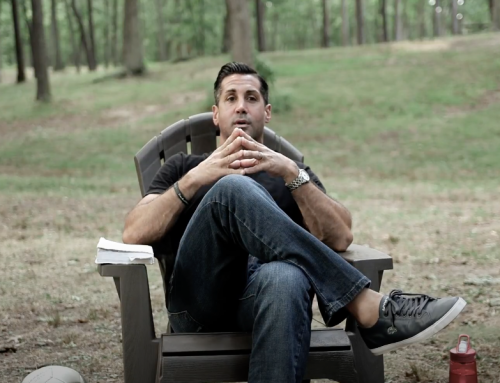by Vanessa Stimmel
Self-Love or Self-Seeking?
Self-love. Self-care. Self-realization. Self-actualization. Self-discovery.
Self. Self. Self.
We’re fed these mantras daily by the culture around us. The media seems to shout it out perpetually: “love yourself!”
Before I go on, allow me to specify – I’m not ignorantly redacting from very important values such as healthy confidence, setting personal boundaries, learning to say “no,” taking time to rest, and ordering priorities.
I am, however, revealing the lie of self-love – what it truly is versus what it appears to be.
Oxford’s definition of love is as follows:
love
/ləv/
Noun
an intense feeling of deep affection.
“babies fill parents with feelings of love”
a great interest and pleasure in something.
“his love for football”
Do I have an intense feeling of deep affection for myself? Do I take great interest and pleasure in myself? Not really. Do you? Should we?
I’m learning to value myself in a balanced way throughout the course of my life thus far. As I age and mature in my spiritual journey, I’m becoming increasingly comfortable with who I am, both internally and externally. I trust in the loving Father who I believe perfectly crafted me. Most of all, I’m confident as a Believer that I can rest in God’s loving arms both now and for eternity because of Jesus and what He has already accomplished on the Cross on behalf of all of us. Yet, I would not answer “yes” to the questions I just posed. Would it be accurate to say that if someone did voice “yes” to these questions, and acted in line with this definition, they would be considered self-absorbed, conceited, or cocky?
Let’s be honest with ourselves and one another, self-love has very little to do with love. It has everything to do with a guise. Self-love is preached by a self-centered generation, and it gives permission to act in self-interest and self-promotion while masked as something beneficial.
1 Corinthians 13 is famously quoted by Christians and non-Christians alike. Most of us can agree that Paul’s description of love in his letter to Corinth is not only eloquent but admirable. Who wouldn’t want to portray and live out a love like that? Yet right there, in the midst of his letter, he famously states in verse 5, “…[love] is not self-seeking.”
This begs the question, are we able to love in a full and beautiful way while also placing ourselves first? I believe the answer here is no. We cannot truly love and place ourselves first simultaneously. Ask anyone in a lasting marriage – or a failed marriage for that matter – if placing yourself first goes hand-in-hand with authentic love. The nature of love is to be selfless, generous, and humble. The most successful marriages are developed when each spouse consistently places the others’ interests above their own.
This does not just apply to marriage, but any familiar relationship or friendship. We grow by giving. We’re filled by helping. And we mature through sacrifice. This is by design. We are made in the image of God. And after all, isn’t He the perfect example of selfless love? He who deserves it all, sacrificed it all, on our behalf, while we were still sinners. This is the Gospel. So as a Christian, how can we subtly promote this post-modern worldview of self-love, while also attaining to walk with and become more like Christ?
I need to clarify once again here, this doesn’t mean neglecting ourselves or becoming a “doormat” of sorts. It doesn’t mean devaluing or placing ourselves beneath others in unhealthy ways. It means finding our rest and satisfaction in our Heavenly Father, our identity and confidence in Jesus Christ, and our wisdom and guidance through the Holy Spirit. He will provide all my needs, not me.
Another passage of scripture that is famously quoted by Christians and non-Christians alike is “love your neighbor as yourself.” This is spoken directly by Jesus in Mark 12:31 as he describes the second greatest commandment (the first being stated in the preceding verses, “love the Lord your God with all your heart, soul, mind, and strength”). Notice what he says here, “…as yourself.” That little two-letter word, as, is of utmost importance. This is Jesus’s very own teaching. We are to love others just like we love ourselves. We as humans are not supreme in relation to God, nor are we to view ourselves as supreme in relation to others. This is the Golden Rule. God is supreme and we are to have utmost equality with those around us – not superior or inferior.
And this is how love blossoms in the human heart. As we show others the affection and interest God has shown us (and that we hope to be given by those around us) we will become more confident in who we are in Him. We will see who He has made us to be in deeper and more beautiful ways. And as we do, our humble affection and pleasure in ourselves, simply as His creatures, will develop.
I confess that as a wife and mother, I’m guilty of falling into this subtle trap of what our generation is preaching – masked excuses to seek self first. As we lean into loving others while understanding who we are in Christ, both healthy confidence and the heart of a servant will naturally build within us. As we rely on Him to provide for our needs, we will find rest and rejuvenation in the most surprising of places. We will be equipped to view ourselves and those around us in a healthy and proper perspective. We don’t need to strive to care for ourselves or place ourselves above anyone else when we are loving and seeking Him first.




